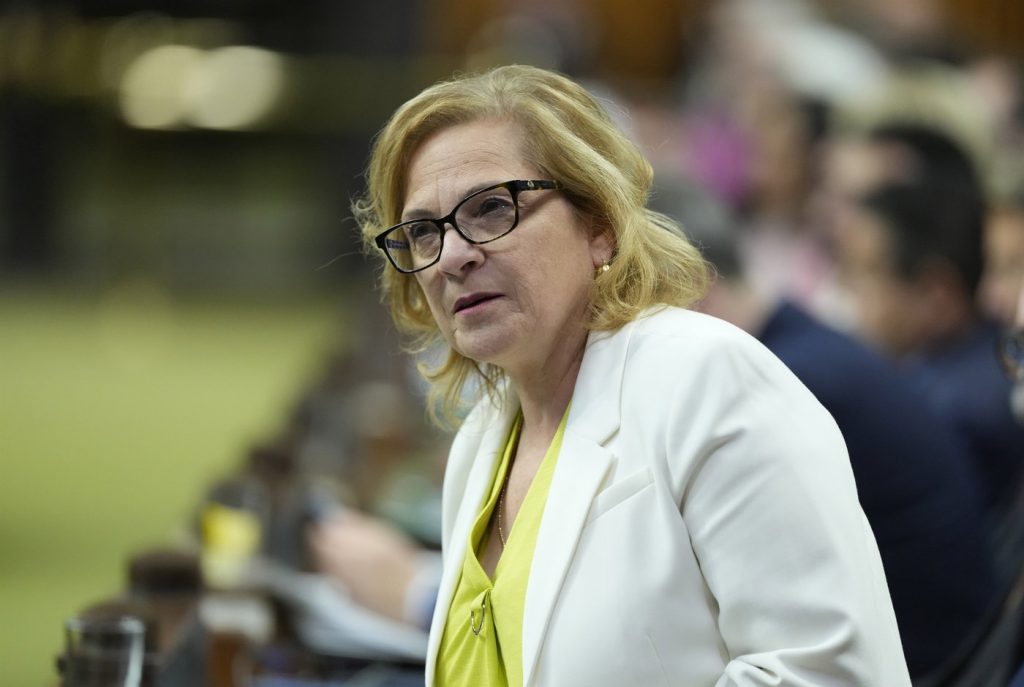OTTAWA – Immigration Minister Lena Diab has stated that the definition of a "public interest" event, which would allow the Immigration Department to pause or revoke immigration applications, is "intentionally not defined" in the new legislation, known as Bill C-12. This legislation concerning border security was discussed during a recent House of Commons immigration committee hearing, where Diab provided insights into the government's rationale for this approach.
Diab emphasized that leaving the definition open-ended is a strategic choice aimed at providing the government with maximum flexibility to respond to unforeseen events that may threaten public interest. "It is intentionally not defined in the legislation, as I said, to allow for maximum flexibility for the government to respond in a range of unforeseen circumstances that threaten the public interest," she explained.
Throughout the hearing, Diab faced repeated inquiries from committee members regarding the situations that would justify the government's use of these new powers to halt immigration applications or revoke existing documents. She indicated that such actions could be warranted during national security emergencies or public health crises, mentioning that the government could have effectively utilized these powers during the COVID-19 pandemic.
Tara Lang, the director general of integrity policy and programs at Immigration, Refugees and Citizenship Canada, supported Diab's claims. She noted that the power to act in the public interest could have facilitated a mass extension of healthcare worker visas during the pandemic, showcasing the need for flexibility in government responses to emergencies.
Conservative immigration critic Michelle Rempel Garner raised significant concerns during the committee meeting. She pressed Diab to clarify what safeguards are in place to prevent potential abuse of the powers granted by the legislation, arguing that it could allow the government to unjustly remove large groups of individuals from Canada without clear justification. "You want Parliament to give the government the ability to kick mass groups of people out, undefined, who they don’t like. That’s what it sounds like to me," Rempel Garner stated, voicing her apprehensions about the implications for ethnic communities in Canada.
In response, Diab assured the committee that these powers would only be invoked in “exceptional circumstances” and that any decisions made would be compliant with the Canadian Charter of Rights and Freedoms. She clarified that the use of these powers would involve consultations with other ministries and cabinet members, aiming to ensure transparency and accountability in the decision-making process.
The proposal has drawn significant criticism from over 300 civil society organizations, including various civil and migrant rights groups, which have called on the government to withdraw the legislation. Their concerns revolve around the potential for mass cancellations of immigration documents and the overarching implications for human rights in Canada.
Officials from the Justice Department who testified at the committee expressed the view that the legislation is compliant with the Charter. Furthermore, the rationales behind the invocation of these powers would be documented and made public through announcements in the Canada Gazette and via cabinet orders, detailing the reasons and the individuals affected by the decisions.
Lang added a clarification regarding the revocation of immigration documents, emphasizing that exercising these powers would not result in the loss of an individual's legal status in Canada. There would also be avenues for individuals to contest being included on such orders if they believe they have been wrongly named, providing a layer of recourse within the framework of the new legislation.
This report sheds light on the ongoing discussions about Bill C-12 and the implications of granting broad powers to the government concerning immigration policies amidst public interest concerns.












